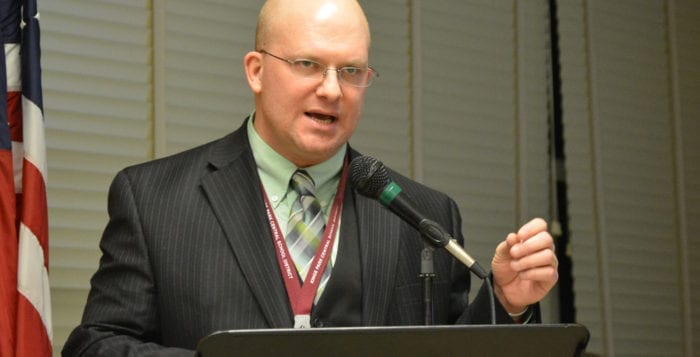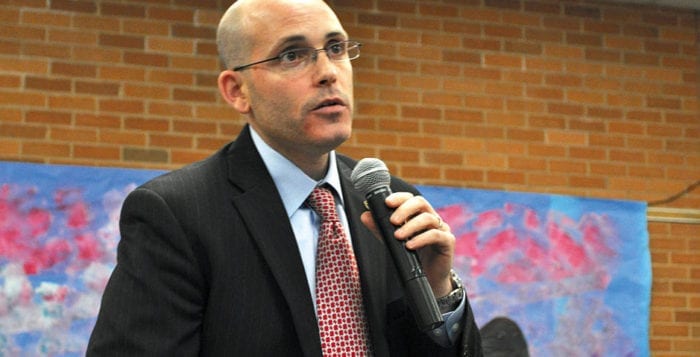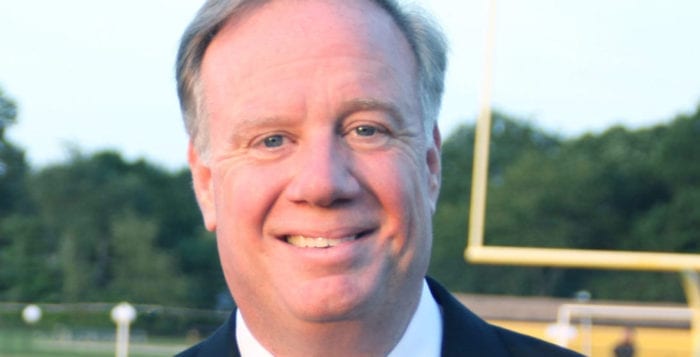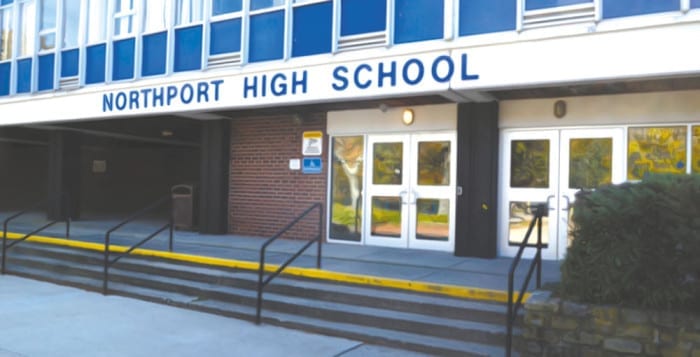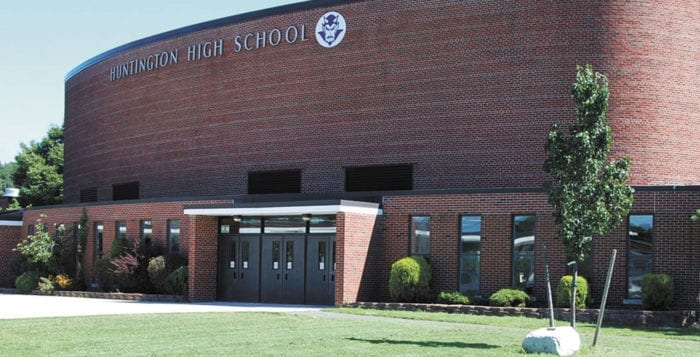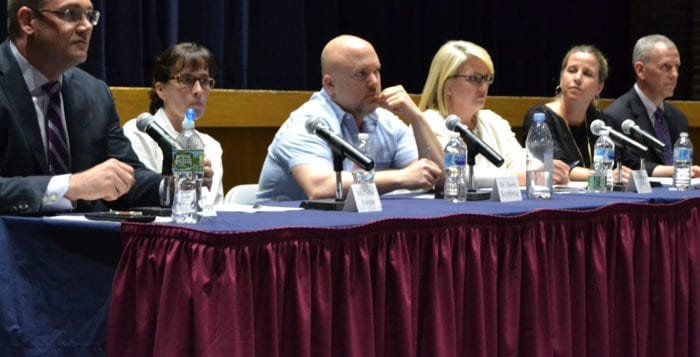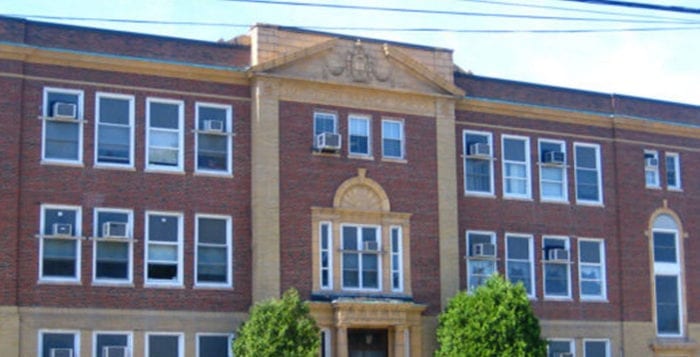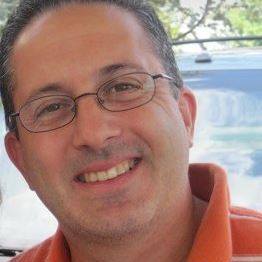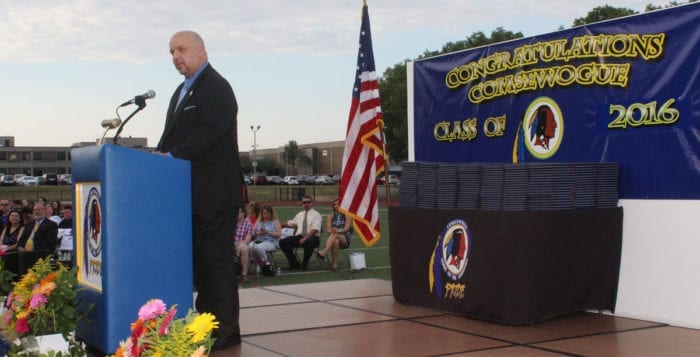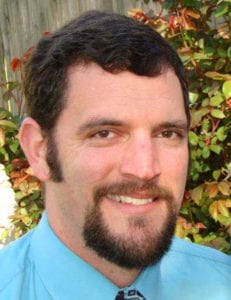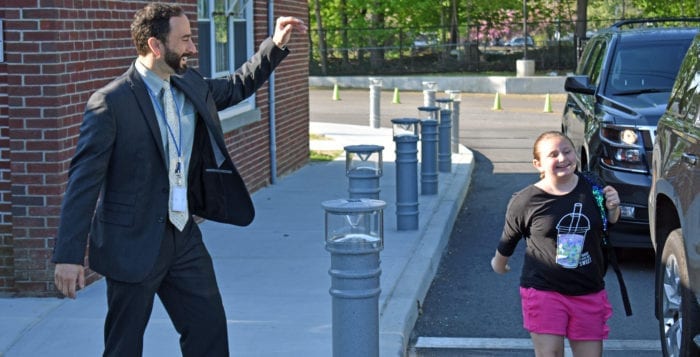The Kings Park Central School district is asking residents to vote on a proposed $92 million budget that looks to include new course offerings and security projects.
The Kings Park school board of education has put forth a proposed budget to the tune of $92,168,700, which represents a 4.09 percent increase, or approximately $3.6 million more than the current year.
The tax levy, which is the amount of money a district needs to raise through property taxes to balance its budget, shows an increase of 2.73 percent from last year, which is below the New York State mandated tax levy cap.
“We were pretty strategic in the adds for next year’s budget,” Superintendent Timothy Eagen said. “I think this year’s budget has some real positive inclusions in it.”
The proposed budget features plans for increased security measures. These include $100,000 dedicated to the creation of security vestibules in the main entryways of all Kings Park school buildings.
“I think this year’s budget has some real positive inclusions in it.”
– Timothy Eagan
“What a security vestibule would do is you would come in the first door, and you’d be in a vestibule, but you wouldn’t get clearance or get buzzed into the building until security scanned your license and confirmed your identity,” Eagen said. “Then you are buzzed through the second door.”
Along with additional security cameras, the school plans on having the teachers download an app to their phones called Rave Panic Button, which will enable them to have a direct line to police, fire and emergency medical at the push of a button.
“The whole idea is to shorten the time that emergency services need to get to the school,” the superintendent said.
Eagen said that the new budget maintains all current curriculum, classes, clubs and activities while adding new courses. If approved, the budget will allow funding for a new AP Capstone Research program, an exploratory course where students learn to do research in any number of fields and synthesize that research into research papers.
Other new courses include an American Sign Language elective for eighth-graders, new math programs, robotics, computer programming and coding.
Kings Park board of education
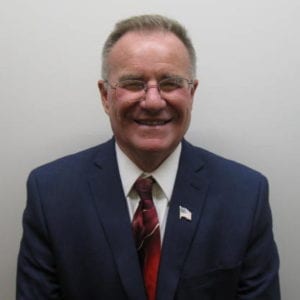
Three people are currently running for two open seats on the Kings Park board of education. Candidates include incumbent trustee Kevin Johnston, incumbent and current board Vice President Diane Nally and newcomer candidate Darryl Valinchus.
Johnston is a 31-year Kings Park resident. He has spent a year on the board and is looking for a second. He said there is still work to do on school renovations, modernization, decreasing class sizes and school security.
“I would like to see the process through,” Johnston said. “I’m a big proponent of education. I would just like to continue in the direction Kings Park is going with education because year by year the number of students going on to secondary education has improved.”
Johnston is a retired educator from the school district where he spent 35 years as an English teacher and coach. His two children are graduates of Kings Park, and he currently works for State University of New York Oneonta as a supervisor of student-teachers. He believes his experience as teacher helps him as trustee, especially when it comes to aiding students and promoting programs for kids with special needs.
“Some of them still feel vulnerable and isolated, and we need to give them the help and attention they need and deserve,” Johnston said. “They need an advocate, and we want to make everyone feel a part of the school.
Nally is a 58-year resident of Kings Park, and she has had three children graduate from the school district. She has been on the school board for the past six years and she is looking to run for another term.
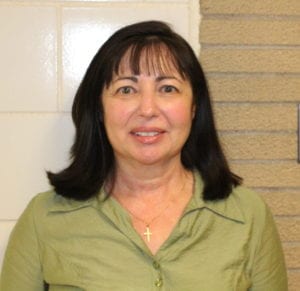
“My three children are educators, my husband is an educator, so I believe education is really important to me and my family,” she said. “I believe it is a responsibility of all citizens to educate our children. That’s why I feel the job I am doing on the board is really important.”
Nally retired as director of religious education at St. Joseph’s School of Religion program in 2016, and now she spends most of her time baby-sitting her three grandchildren. She said two of the most important things she wants to tackle as member of the board are drug issues and the mental health of students, and that she wants to involve the community in that process.
“There’s been a lot of concern over emotional issues facing some of our children,” she said. “I think that is something that needs to be addressed.”
Valinchus is a 15-year Kings Park resident and is a retired sergeant of the New York Police Department’s intelligence bureau. He currently owns a business as an expert witness providing services to law enforcement agencies and prosecutors’ offices. He has also spent 10 years on the Kings Park Youth Athletic Association’s board. He said he is running to provide his expertise on
security to the district.
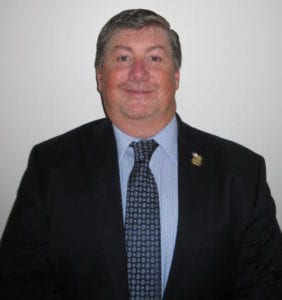
“I think my background in law enforcement will help us with one of the most pressing things right now … securing our students and our schools,” he said. “I feel that diversifying the backgrounds on the school board will help us come [up] with better solutions and better decisions.”
Valinchus said he doesn’t want to wait for the state to give funds before they add extra security to the school.
“There’s things we can do to secure our buildings, without offending people, without making it look like smoke and mirrors, without sending our security too far,” Valinchus said.
Valinchus has had two sons who graduated from the district, one in 2014 and the other in 2017.
Beyond security, Valinchus said he wishes to provide a financially responsible budget that addresses the community’s concerns.
“Education is a priority,” he said. “We need to make sure our students are prepared for college.”
The budget and board of education vote will take place May 15 from 6 a.m. to 9 p.m. at the Kings Park High School rear gymnasium.

